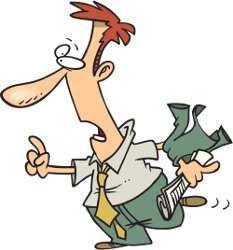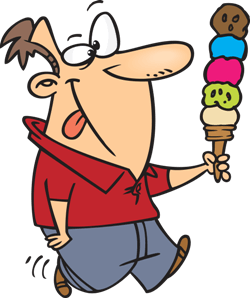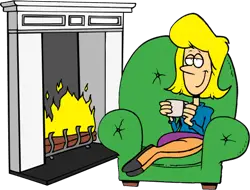The Complete List of
English Spelling Rules
Lesson 15: Forming Adverbs
In this series of lessons, you will learn useful spelling rules in English.
This lesson will give you helpful guidelines so that you know how to properly spell adverbs you want to form from adjectives.

Download a free worksheet + answer key.
As you know, an adjective in English describes a noun. An adverb describes a verb, an adjective, another adverb, or even an entire sentence.
Most adverbs have a special ending: -ly. You can form adverbs from some adjectives, but you must be careful of the spelling.
Here are some rules to help you.
1. Adding -ly to the end of the adjective

Mark is running quickly to catch his bus.
Click Here for Step-by-Step Rules, Stories and Exercises to Practice All English Tenses
Many adjectives can be transformed into adverbs. In most cases, we do this by simply adding -ly to the end of the adjective.
Here are some examples:
- suddenly
- brightly
- slowly
- mysteriously
- really
- interestingly
- politely
- kindly
- generously
- calmly
- nervously
- generally
2. Adjectives ending in -y

Fred looked hungrily at his big ice cream cone.
When the adjective you want to make into an adverb ends in -y, you must change the y to an i, then add -ly.
Here are some common examples:
- happily
- angrily
- clumsily
- lazily
- hastily
- messily
- readily
- stealthily
- cozily
3. Adjectives that end in -le

Marlene is sitting comfortably in her favorite chair.
When the adjective ends in -le, remove the e and replace it with a y.
For example:
- terribly
- incredibly
- adorably
- acceptably
- understandably
- noticeably
- recognizably
- predictably
- suitably
- remarkably
4. Comparative and superlative adverbs

Dave's car is moving more slowly than Ethan's car.
Finally, when you want to form a comparative or a superlative adverb, you should add "more" before the adverb to make it comparative, and "most" to make it superlative.
For example:
Correct: Paul spoke more politely than Erica.
Incorrect: Paul spoke politelier than Erica.
Correct: I saw the most amazingly beautiful film yesterday!
Incorrect: I saw the amazingliest beautiful film yesterday!
Remember that the adverb well is irregular. Its comparative form is better, and its superlative form is best.
Correct: Mark did better on the test than I did, but Amanda did the best.
Incorrect: Mark did more well on the test than I did, but Amanda did the most well.
Review
So, let's review what we have learned about forming adverbs in English:- Most adjectives that can be transformed into adverbs simply
need -ly
added to the end.
- If the adjective ends in -y, you must change
the y to i, then add -ly.
- If the adjective ends in -le, you should
remove the e
and add -y.
- To form a comparative adverb, add "more" before it. To make
it superlative, add "most." Remember that the adverb "well" is
irregular.
Download a free worksheet
Get Updates, Special Offers, and English Resources
Download your FREE GIFT (the first two chapters of
English Short Stories Book and Workbook)
as soon as you join!

By submitting your email, you consent to receiving updates and newsletters from us and to the sharing of your personal data with third parties for the purposes of sending you communications. We will not spam you. You can unsubscribe at any time. For more information, please see our privacy policy.





